The Roma Ministry of the Diaconia of the Reformed Church in Hungary (RCH), held a conference and a professional day for the first time for all who are involved in Roma ministry throughout the Carpathian Basin. The event on November 15th was attended by pastors, professionals, colleagues, and co-workers.
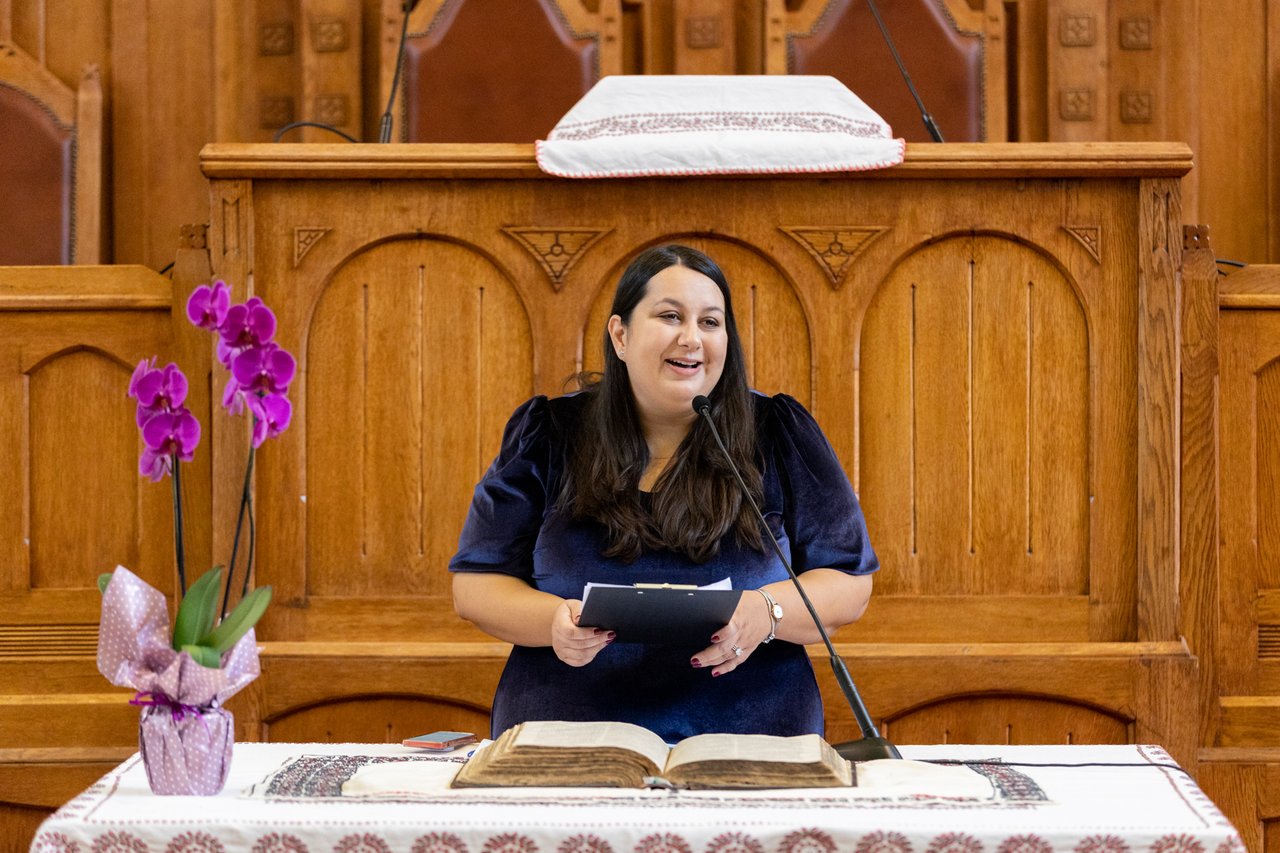
Photo: Levente Váradi
At the beginning of the event, Szabina Sztojka, pastor and head of the Roma Ministry, addressed the audience. She said that the day was inspired by the vision to unite the Hungarian-speaking communities in the Carpathian Basin, for whom the Roma Ministry is important and part of their service.
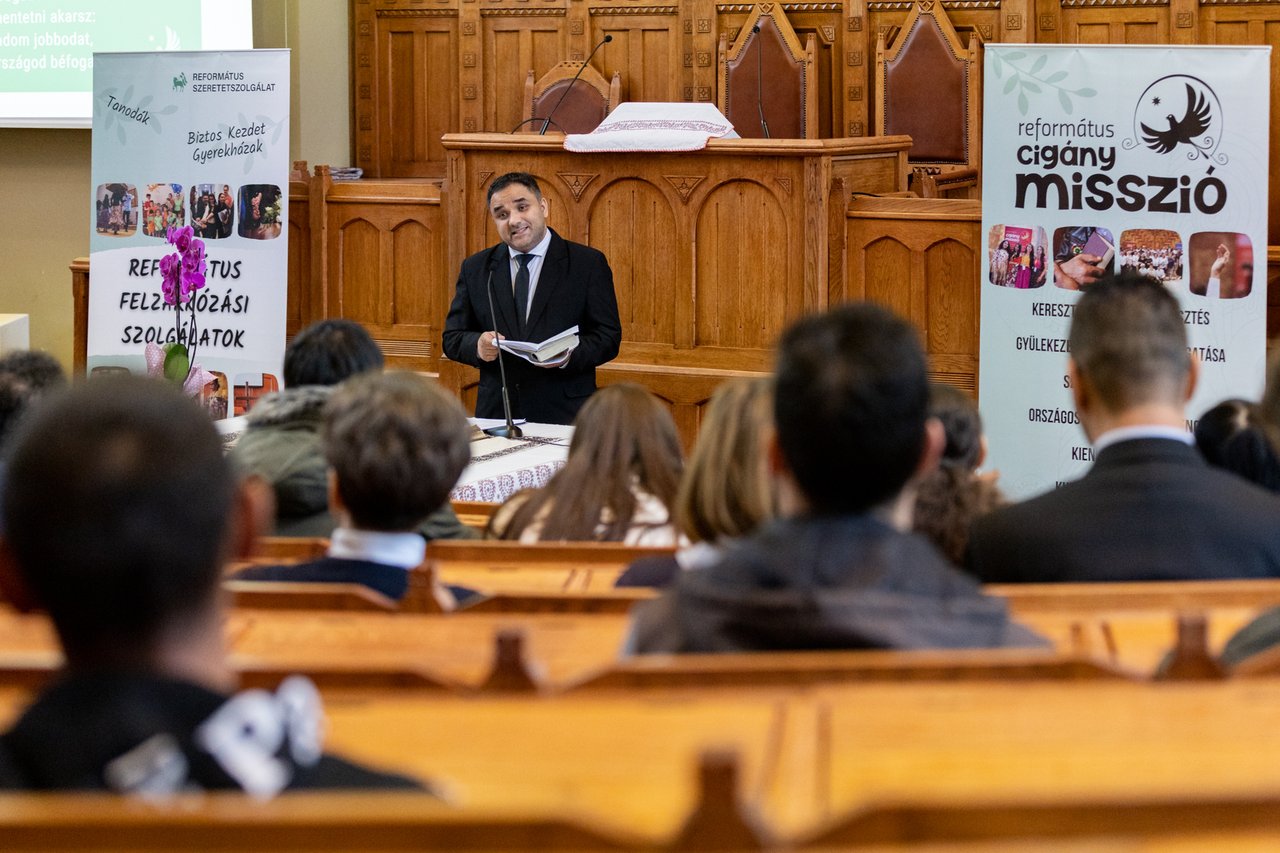
Photo: Levente Váradi
Róbert Balogh, pastor of Váchartyán, preached the opening sermon based on 1 Phil 3-7. "In such a situation, the voice of complaint is not the voice of doubt, of fear, but the voice of a man of hope. He has never lost the hope he received from Jesus Christ, but is filled with a sense of gratitude. Is it not the same now?”asked Róbert Balogh. “No one can ever break our bond with Jesus,” he continued. “The question is not who we are now, where we come from, but who we become in the hands of God: he is the one who shapes our lives and character. The outstretched hands of Jesus Christ will always be with us," he concluded.
The participants were welcomed by Zoltán Balog, Ministerial President of the Synod of the RCH, in a video message. "There are wonderful examples in the Carpathian Basin of how pastoral care for Roma can reach out to people and at the same time attend to their physical and spiritual well-being. It is important that we make a strategy out of these practices together so that in the middle of it, there is the work of the Holy Spirit, the hope that he is able to help us cross borders, address each other, and unite in praising God. This will be a spiritual strength that will bring good professionally, humanly, and strategically to those who are disadvantaged today," the Bishop said.
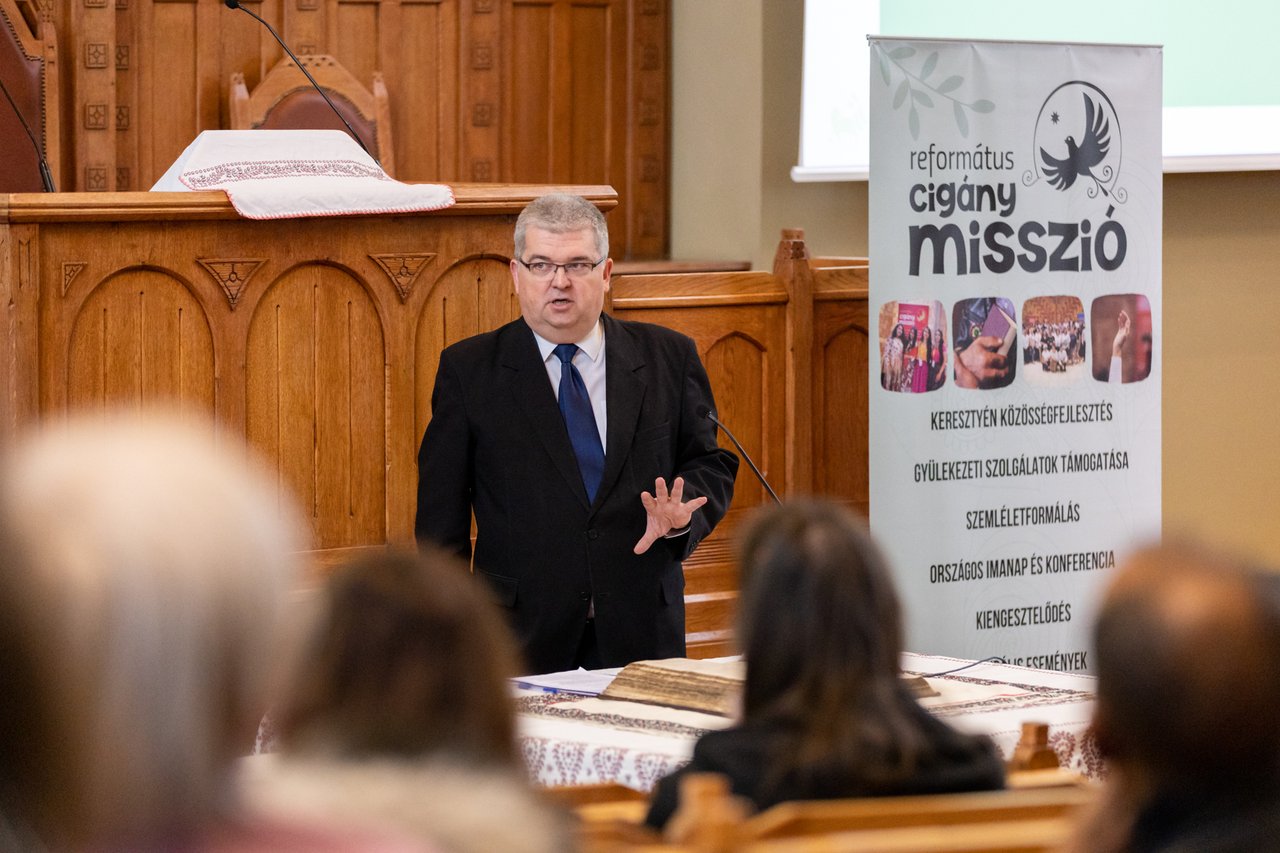
Photo: Levente Váradi
Afterward, Károly Czibere, Director General of the Diaconia of the RCH, addressed the audience on the Reformed way of inclusion. "It is the responsibility of the Diaconia that all those who serve in the Church and are called by the Lord to help our brothers and sisters in difficulty - be it in any area of diaconia - must be united. There must be no insular fragmentation, for the unity of the Body of Christ must be demonstrated. Wherever our serving brothers and sisters are in the Carpathian Basin, we must shine the hope that they are counted and that they are not alone. This is our fundamental duty. We need to live the unity of the Body of Christ, to learn from one another: charity must make this possible," said the Director General.
Károly Czibere also spoke about poverty, vulnerability, and its continuance. He spoke about how the Diaconia can offer a helping hand. "We cannot be indifferent to those who are suffering. The gospel has healing power, and there are many initiatives to extend the potential reach of the church," he explained.
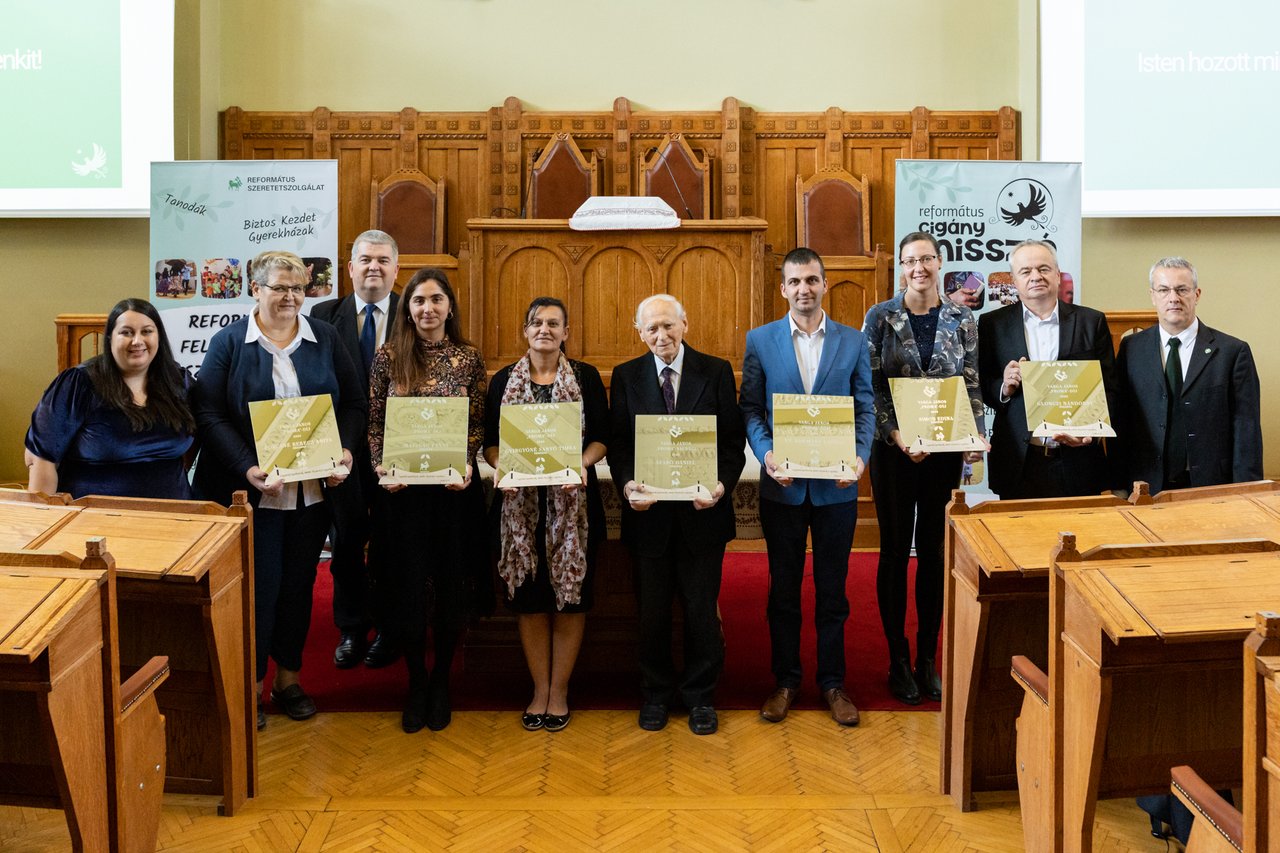
Photo: Levente Váradi
At the event, the János Varga PRoma Awards were presented: the awards recognise the work of Roma and non-Roma brothers and sisters whose main goal in the Reformed Church is to help the development of Roma and/or disadvantaged children.
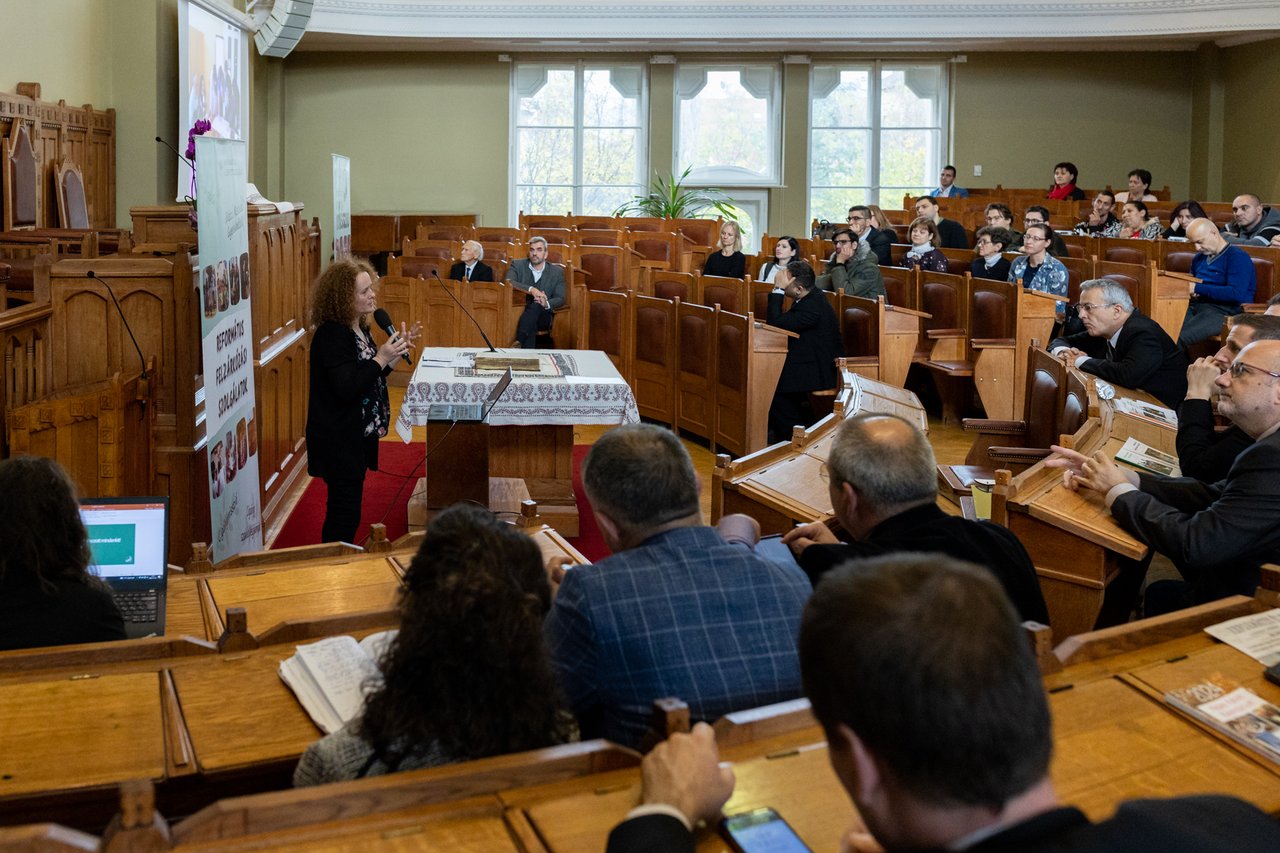
Photo: Levente Váradi
The afternoon continued with personal testimonies: László Kovács, a participant in the Together for One Another training, presented his voluntary service in Transcarpathia. Eszter Dani, pastor of Solymár and former leader of the Roma Ministry, presented how the Roma Strategy has been shaped over the past ten years, how the path led to the concept, and then to creating the strategy. Szilveszter Füsti-Molnár, professor of the Reformed Theological Academy of Sárospatak, presented the Roma Mission Strategy that is currently being prepared.
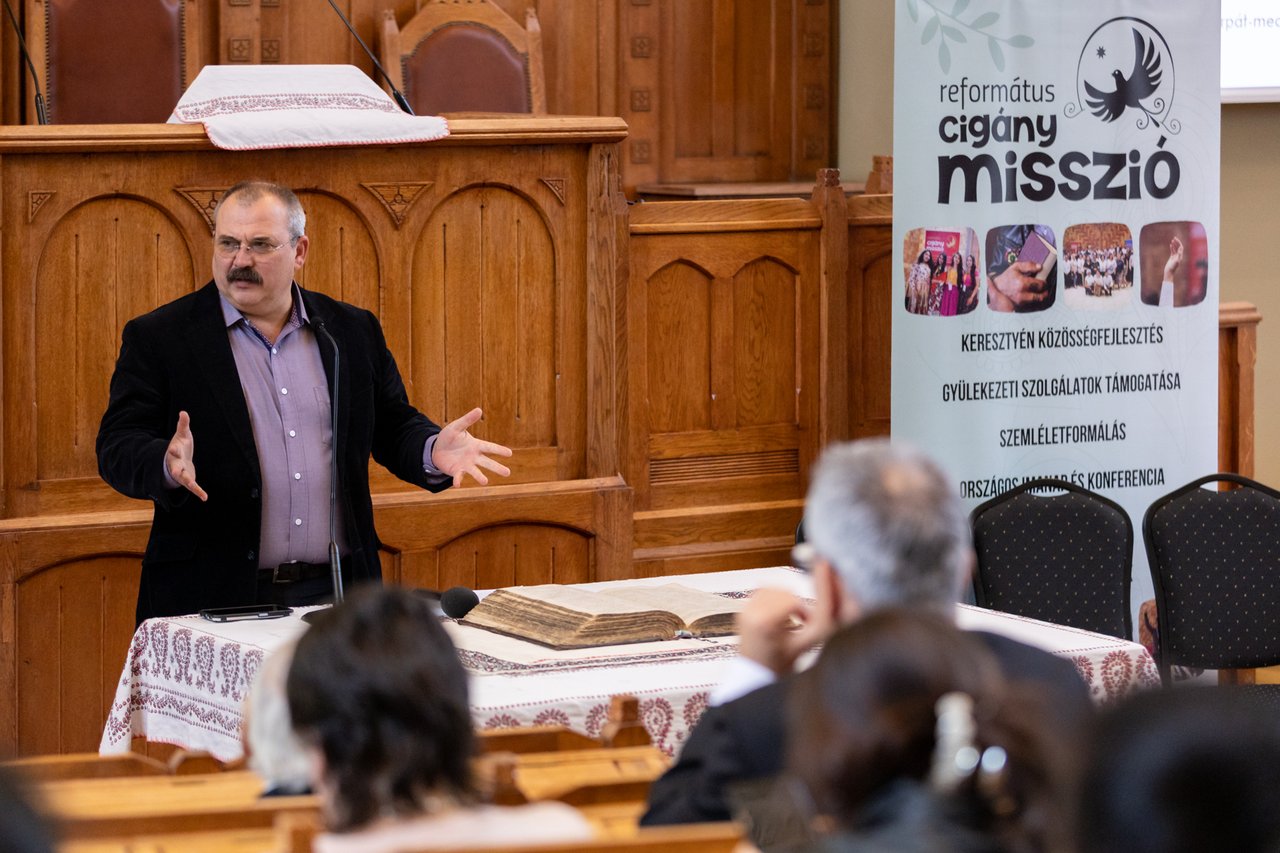
Photo: Levente Váradi
Afterwards, the ministries in the neighboring countries were also presented: the Transylvanian diaconal and the Roma ministries were introduced by Péter Makkai, the head of the Transylvanian Reformed Roma Mission and director of the Diakonia Christian Foundation, while the Roma mission in Slovakia was presented by Béla Icso, a leader of the Reformed Christian Church in Slovakia.
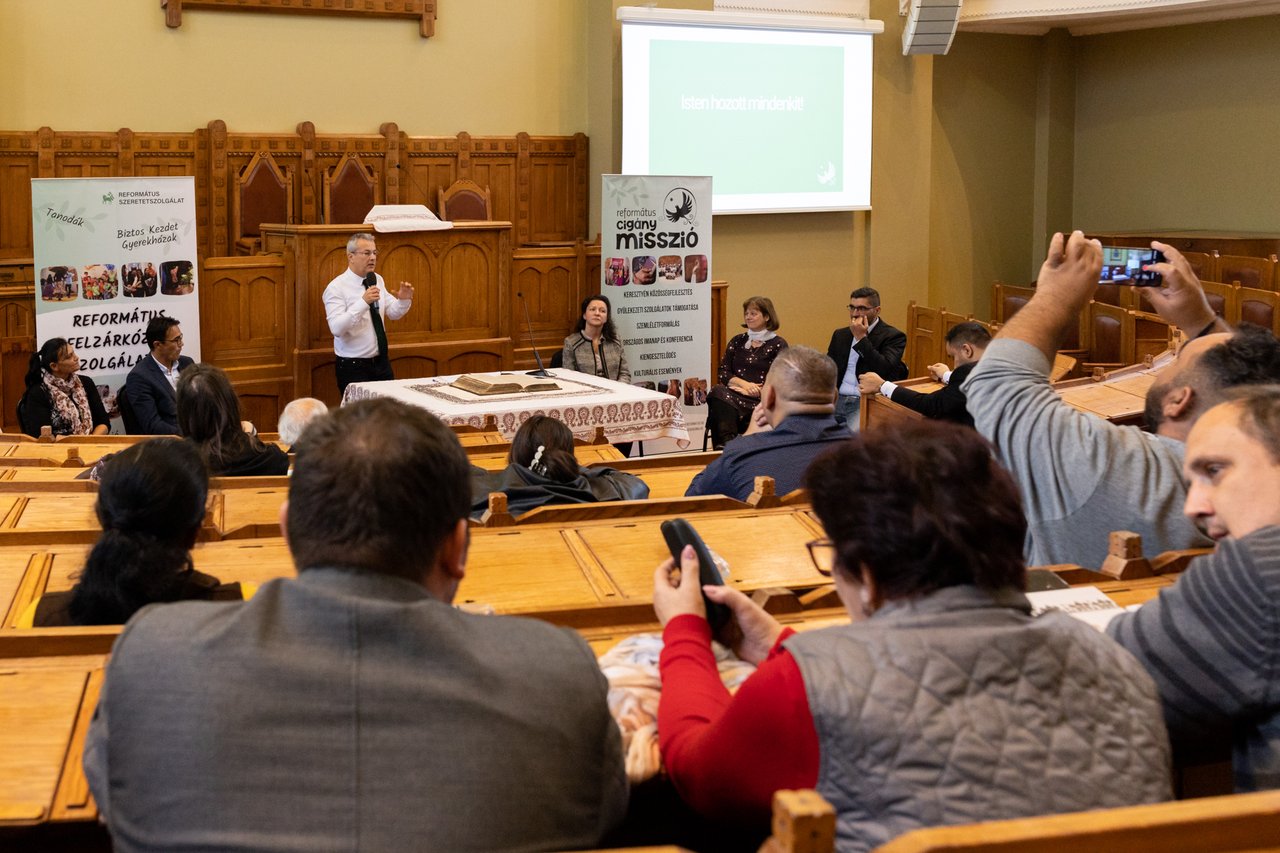
Photo: Levente Váradi
The programme ended with a panel discussion, where Tamás Eperjesi, head of the Department for Social Inclusion of the Diaconia of the RCH, asked attendees actively involved in the Roma mission in Hungary and Transylvania about the joys, difficulties, challenges and beauties of their ministry.